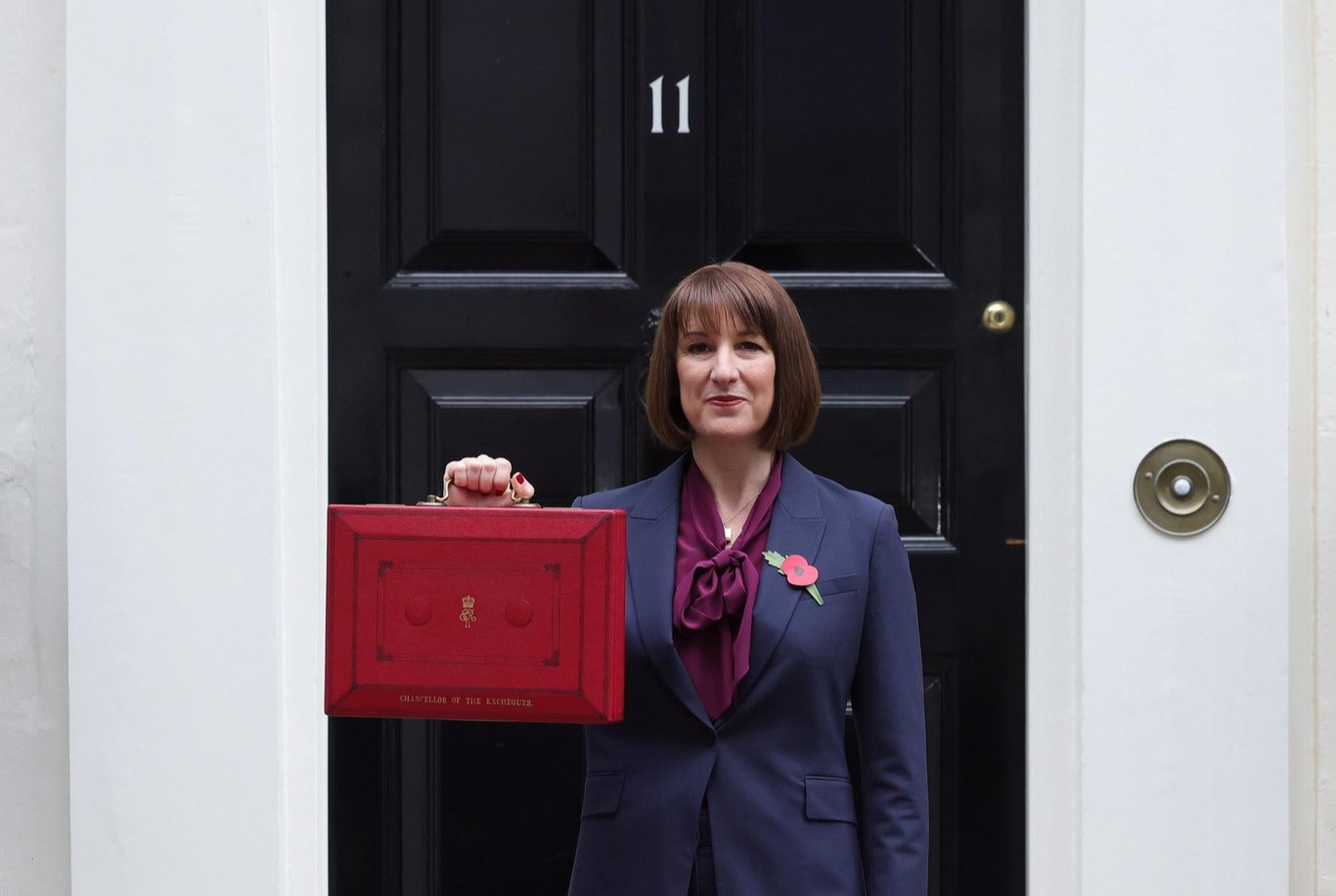
Professional Builders Merchant presents a number of reactions from the builders’ merchant and wider construction sector to the Autumn Budget – the first from the new Labour Government.
John Newcomb, BMF CEO said: “We fully expected this to be a difficult budget for our members, with many of the revenue raising measures flagged in advance.
“The majority of our merchant members are classified as SMEs, with over 70% having an annual turnover below £12.5m. While there was one piece of good news relating to fuel duty, this is far outweighed by the increases in minimum wage and national insurance contributions. Our members will be hugely impacted by these extra costs which will immediately come off their bottom line.
“This is extremely disappointing at a time when we are seeking to increase recruitment and skills in the building materials sector. Skills which will be essential if we are to fulfil the additional product demand to deliver 1.5 million new homes, which the government has pledged, but provided little detail as to how they plan to achieve this target.
“As always, the devil is in the detail. We need to get Britain building. The sooner we start seeing details of how the government plans to achieve their housing target, the better.”
David Young, South West Regional Chair of the BMF and CEO of Bradfords Building Supplies, also shared his response to the Budget announcement in a short video posted on X:
https://x.com/bmf_merchants/status/1851623119250747648
The FMB warns that “small building companies face challenging times ahead, as they grapple with a significant rise in employers’ National Insurance contributions and Capital Gains Tax increases.”
Brian Berry, FMB CEO, said: “The Budget was the first opportunity for the new Government to set out its long-term financial plans for the country. In challenging economic conditions, the Chancellor of the Exchequer delivered a mixed Budget with promising plans for the long-term future of the construction industry, however it is likely to present substantial challenges to firms managing their business finances. At a time when SME builders are needing a boost, they may, like many in the country, have to take a hit before they see things get better.
“The Chancellor’s decision to significantly increase employers’ National Insurance contributions will create major headaches for firms looking to take on staff at a time when the building industry in desperate need of new workers. However, it is good that the Chancellor has shielded small companies by increasing Employment Allowance, as is the rise in the Apprenticeship wage which will help increase the appeal of a career in construction for young people. Capital Gains increases may also hit builders looking to sell off their companies when they look to retire.”
Brian concluded: “The FMB has been calling for more details of the Government’s plans to improve the energy efficiency of the UK’s homes, a key pledge in Labour’s election manifesto. The announcement of £3.2bn to fund the Warm Homes Plan will be crucial to getting more SME building companies to enter the retrofit market. The announcement of additional support for SME house builders to access low-cost loans is also welcome, and alongside the announcements on housebuilding made in recent months, offers hope for the future. SMEs have a crucial role to play in plans to get Britain building again, and it is vital that the Government does not lose sight of the challenges the sector continues to face.”

National Federation of Builders
The Labour Government has delivered its first UK budget in 15 years, with the NFB stating that it “present(s) a strong growth narrative aimed at rebuilding Britain and filling the £22 billion black hole they claim to have inherited.” However, the organisation warns that “Labour’s difficult first budget complicates 1.5 million homes target.”
NFB Chief Executive Richard Beresford said: “The 2024 Budget was always going to be challenging due to the ongoing £22 billion black hole narrative. Nevertheless, it is positive to see the suspected fuel duty rise did not happen, especially as the construction industry is already paying considerably higher fuel costs after the last government cut their access to red diesel.
“We also welcome the £5 billion funding boost for affordable housing, commitment allowing councils to retain 100% of Right to Buy receipts and, the £3.4 billion for retrofitting.
“However, the Government’s target to deliver 1.5 million homes is now at a considerable risk due to the increase in Employer National Insurance contributions. This announcement will hinder the industry’s ability to take on and train new staff and support the next generation of skilled workers. While some may point to planning reforms as the solution, those reforms have not yet been implemented, and it will take years before new projects avail of them.”
Included among the other announcements is the Chancellor’s move to not extend the freeze on income tax and National Insurance thresholds beyond 2028, an increase on Capital Gains Tax, a rise in National Minimum Wage, and commitments to increase funding for transport and energy infrastructure.
TDUK Chief Executive David Hopkins said while the Budget announcements around housing, planning and education will all be warmly welcomed by industry, the ‘devil will be in the delivery’ to ensure that this additional funding will be able to create the kind of step-change needed to create a prosperous, low-carbon future for the UK.
He commented: “We welcome the Chancellor’s announcement in today’s Budget of additional funding for the Affordable Homes Programme, with social housing having largely flatlined over recent years – particularly amidst an ongoing programme of cladding remediation. The additional £500m allocated for the former, and £1bn of funding into the latter, could provide a crucial boost for the sector and help place the Government on a pathway to begin to meet their housing targets.
“Equally, announced investment into the UK’s existing housing stock to make them more energy efficient, boost local authority planning capacity, build schools and infrastructure, plant trees, reshape right to buy, and reform the apprenticeship levy, are all welcome steps forward from the new Government, and will help define a new era of growth. Each of these initiatives is essential for supporting the UK to overcome the housing and climate crises.
“However, with the Government having promised to deliver 370,000 homes per year, the devil will be in the delivery on whether this Budget is enough to realise this ambition. This target requires house building to more than double in less than five years, even as the construction industry faces skills and capacity issues and must rapidly reduce embodied carbon. It is a shame that the Chancellor did not see fit to tie funding for housing to low carbon materials or low carbon outcomes, such as those from timber construction systems.
“If we are to generate systemic change, we need to encourage and recognise investment into offsite manufacturing, skills for the future, and low-carbon construction solutions. The timber industry has been a critical driver for the UK across all three of these areas as a proven business solution which offers quicker build times, higher quality homes, and carbon capture and storage. Beyond this Budget, we must see the Government begin to embrace timber in construction.”
Business group Logistics UK says it has “expressed its members’ mixed emotions about the new government’s first Budget.” It notes that “while the industry is reassured by the freeze in fuel duty, the hike in National Insurance contributions from employers and higher business rates, amongst other tax rises, will be a real challenge for a sector that operates on small margins.”
Chief Executive David Wells OBE commented: “The vast majority of the UK’s logistics businesses are SMEs so maintaining the current five pence per litre fuel duty cut for another year will help them keep their heads above water, but the huge increase in employment costs for businesses, primarily though employer NI, will have a damaging effect on the industry and its potential to drive growth across the whole economy.
“Increases in business rates, Vehicle Excise Duty and the HGV Road User Levy will also be hard for businesses to swallow. The logistics sector operates on very narrow margins – during the 12 months to the end of July 2024, more than 500 logistics businesses went bust and we are worried that the number of businesses that cease trading in the coming months will continue to accelerate due to these much higher costs. Nothing moves without Logistics – the efficiency of the logistics sector and productivity of the economy are completely intertwined, so any negative impact in our sector will be felt throughout the wider economy. This big tax grab from businesses risks being inflationary and stifling investment.
“The Chancellor also announced £100 billion in capital spending investment over the next five years and if this is directed towards the transport and energy infrastructure needed by our sector, this would improve its efficiency and boost UK productivity. However, our members will have to wait for the forthcoming Spending Review, Infrastructure Strategy and the final Industrial Strategy, to better understand the government’s plans.
“Maintaining the Plug-in Van Grant, and funding it by £120 million in 2025/26, is also good news for logistics businesses as ending this grant for the purchase of electric vans would have significantly increased the cost of the net zero transition.
“The extra £500 million announced for road improvements will be welcomed by businesses currently facing increasing maintenance bills as a result of damage caused by the state of the UK’s roads, but it is disappointing the government has delayed Road Investment Strategy 3 (RIS3) by a year to 2026/27 and cancelled several road projects on the Strategic Road Network. Government appraisal of schemes when assessing affordability needs to recognise the wider direct and non-direct economic value of enabling efficient supply chains.
“We have been calling for a long-term vision for improving the UK’s infrastructure for some time and this must start with the identification of the UK Logistics Network if our sector is to unlock the potential growth that everyone wants.”
MD Allan Wright said: “When Labour failed to include construction within its industrial strategy earlier this month, I was not alone in expressing my surprise and frustration that the government’s early focus and commitment had seemingly lost momentum so quickly.
“The irrefutable fact that, in the intervening weeks, Labour has failed to respond meaningfully to the sector’s challenge alongside its further exclusion from today’s Budget speech, appears completely baffling.
“Clarity on the key issues should have come today. Instead, we’re left still asking when much-needed planning reform be delivered, and when the government will support young people on to the housing ladder.
“These areas could, and should, have all been addressed to provide the tangible detail and confidence that the construction and housebuilding sectors so desperately need in what currently remains a subdued market.
“I can only hope that sector dissatisfaction won’t go unheard for too much longer and that the government eventually recognises the vital role that construction plays in the buoyancy of UK plc.”










